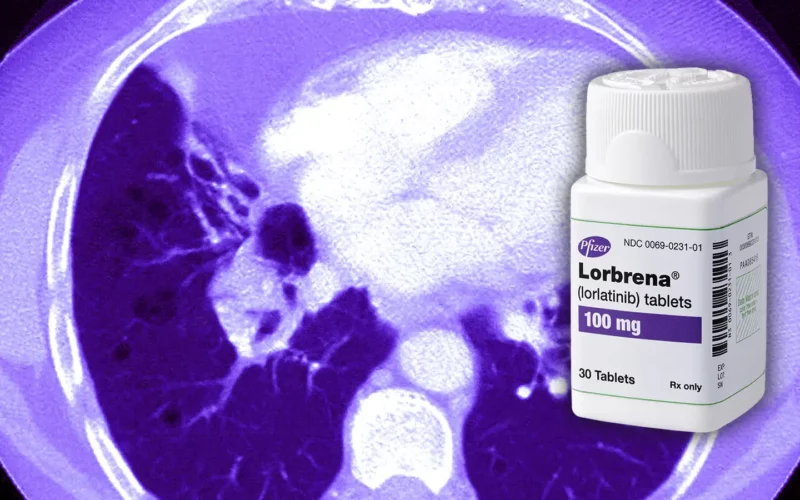A new drug, lorlatinib, has shown unprecedented results in stopping the progression of advanced lung cancer, according to trial data presented at the American Society of Clinical Oncology (Asco) annual meeting in Chicago. The results have been described as “off the charts” by leading doctors.
Lung cancer remains the world’s leading cause of cancer death, responsible for about 1.8 million deaths annually. Survival rates for those with advanced stages of the disease, where tumors have spread, are particularly low. However, the latest trial offers new hope.
Data from the trial revealed that more than half (60%) of patients with advanced forms of lung cancer who took lorlatinib were still alive five years later without disease progression. In contrast, only 8% of patients treated with the standard drug crizotinib had the same outcome.
The study, led by Dr. Benjamin Solomon of the Peter MacCallum Cancer Centre in Melbourne, Australia, involved 296 patients with advanced ALK-positive non-small cell lung cancer (NSCLC). Participants were randomly assigned to receive either lorlatinib or crizotinib. The findings represent the longest progression-free survival (PFS) ever recorded for NSCLC, the most common form of lung cancer.
“To our knowledge, these results are unprecedented,” said Dr. Solomon. “Lorlatinib is the only ALK TKI that has reported five-year progression-free survival, and even after this time, the majority of patients continue to have their disease controlled, including control of disease in the brain.”
The trial showed a stark contrast in outcomes between the two drugs, with a five-year PFS rate of 60% for lorlatinib patients compared to 8% for those on crizotinib. This significant difference highlights the effectiveness of lorlatinib in managing advanced lung cancer.
“You don’t need a magnifying glass to see the difference between these two drugs,” remarked Dr. Julie Gralow, Asco’s chief medical officer. Dr. David Spigel of the Sarah Cannon Research Institute also praised the results, calling them “off the chart.”
Despite the positive results, side effects were noted in the trial. Treatment-related issues occurred in 77% of lorlatinib patients and 57% of crizotinib patients, with common side effects including swelling, high cholesterol, and elevated lipid levels.
Prof. Charles Swanton, chief clinician at Cancer Research UK, who was not involved in the study, emphasized the significance of these findings. “The groundbreaking results show that over half of the patients who took lorlatinib did not suffer a progression in their disease after five years. This study could present us with an effective way of stopping cancer in its tracks and preventing it from spreading to the brain.”
The success of lorlatinib in this trial marks a significant advancement in the treatment of lung cancer, offering renewed hope for patients facing this challenging disease.








